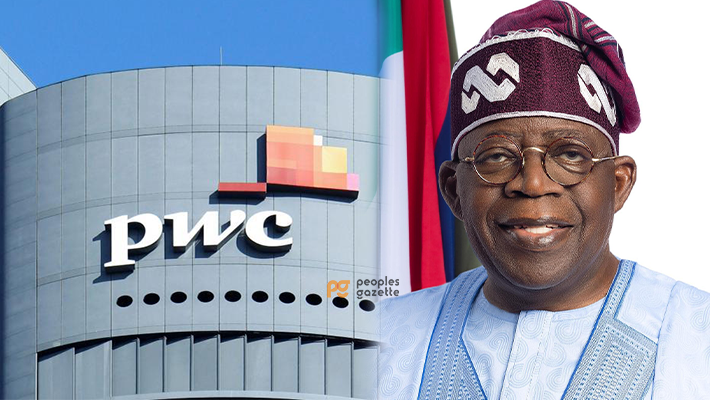President Bola Tinubu’s economic policy scrapping fuel subsidy and collapsing multiple foreign exchange windows into the single Importer and Exporter, or I&E window, drastically depreciated the naira’s value by 98 per cent, a report by the Price Water Coopers (PwC) stated.
The top global business advisory audit firm said in its report titled ‘Nigeria’s Economic Outlook: Seven Trends That Will Shape Nigerian Economy in 2024’ released last Wednesday that Mr Tinubu implemented policies that had the domino effect of devaluing the naira by nearly 100 per cent but appealed to foreign investors as the move was projected to improve the economy in 2024.
“Removal of fuel subsidy (which cost $10 billion in 2022), and the collapse of multiple FX windows into a single I&E window, which caused naira to depreciate by 98 per cent between May and December 2023, among other monetary policy efforts, were key programmes executed to spur growth and regain investors’ confidence,” it said.
Mr Tinubu, in his inaugural speech on May 29, 2023, announced there were no provisions covering fuel subsidy in the 2023 budget and further adopted the free float, collapsing various forex windows into the I&E to allow the market forces to dictate the price of forex.
Although eliminating subsidies without an immediate corresponding palliative plan threw citizens into untold hardship and raised prices of products and services by 100 per cent, PwC maintains the decision was necessary to appeal to investors and curb oil bunkering.
“The planned fiscal and monetary policy reforms in 2024 are expected to stimulate economic growth, reduce inflation and address the FX challenges in 2024 to drive investment,” the PwC report predicted.


